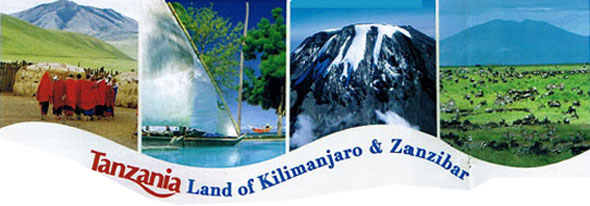It is an open secret that tourism is an important sector for the economies of the East African Community member states. Also, East Africa is an important tourist destination in the world. The tourism and hospitality industry are key pillars of the regionís socio-economic development and poverty reduction endeavours. Tourism has an incredible multiplier effect, better than many other sectors. We have earned a substantial amount of foreign exchange from tourist activities: indeed this industry has made a significant contribution to the incomes of our respective nations and peoples. In addition, there are many East Africans whose livelihood solely depends on tourism. Tourism, therefore, is a key sector which deserves the attention of our governments, the business community and the people of East Africa. Given the potential that the region has in terms of tourist attraction I am sure the industry can grow even further if we take the right steps. Specifically we need to identify what more needs to be done that we have not. We have to figure out what challenges need to be overcome. The first challenge we need to deal with is inadequate skilled manpower and expertise in tourism management and in the hospitality industry. Skilled manpower and experts that would transform the existing potential of our region into meaningful economic gains, that is who we need. A region may have natural beauty and all imaginable tourist attractions, but without appropriate expertise to exploit that potential the region and its people will not be able to enjoy the fruits of our God-given gifts. The second challenge is the lack of adequate supportive physical and institutional infrastructure to promote tourism in the region. Our physical connectivity in terms of roads, air and waterways are not well developed and in some places poor or non-existent. Hotels, restaurants and other tourist services are inadequate. Some of these hotels and related services are not of good quality. In this regard, therefore, we need to work together to overcome these shortcomings and improve regional connectivity and services to tourists. This, we cannot do alone as governments. We need to encourage both the domestic and international private sector to rise to challenge and to invest in the tourism sector. I have in mind expanded air and surface transport, increased numbers of high standard hotels, tourism marketing and enhanced cooperation among key stakeholders. Regarding inadequate supportive institutional frameworks, we need to work together to create strong domestic and regional institutions that would promote tourism in its totality. The promotion of the East African region as a common to compete and scramble for the same market. In my view, we stand to benefit more by working together and forging alliances instead of competing and creating rivalries. This is totally unnecessary. There is also the proposed issuance of a single tourism visa for the East African tourist market. This is another way to promote the community as a single tourist destination and create synergy in the tourism industry across the region. It is a great idea which can boost tourism in East Africa. However, we must make sure that it is properly structured and all the important issues are carefully considered before this innovative idea is implemented. Besides this, we should also address the issue of flights and air fares from the major tourist source markets to our region.
TANZANIA (eTN) - Tanzania on Thursday got a new fifth president - Dr. John Magufuli - at a time when the people of this African nation are excited and waiting eagerly to see this new president fulfilling his promise to uproot corruption and restore discipline within Tanzanian government departments.
Dr. Magufuli, the former Minister for Works and who has proven to be a tough no-nonsense public official during his tenure in office before elected into the highest post in Tanzania, was sworn in on Thursday to lead this nation for the next five years.
Standing as a newcomer to Tanzaniaís politics, Dr. Magufuli was picked in a surprise as a presidential candidate for the ruling CCM party. He becomes the fifth president of Tanzania after independence from Britain 54 years ago.
The former science teacher and a scientist cum politician, Dr. Magufuli has promised to bring about discipline and stamp out bribery, embezzlement, and irresponsibility within government departments.
Tanzanians are as well expecting him to pounce on public officials and businessmen who have robbed Tanzania through offshore accounts, a situation which has widened the gap between the haves and the have-nots - a scenario seemed to catalyze breach of law, hence, breaking the existing peace persisting in this country.
Speaking during his campaign rallies, Dr. Magufuli promised the Tanzanian voters to see him executing his duties to bring about development in Tanzania through hard work.
Theft of public money and inefficiency within the Tanzania government have led to the collapse of companies, including this countryís national airline, Air Tanzania Company Limited (ATCL), which this new president has promised to revive.
Lack of money from the government had greatly affected tourism marketing, though it is the current leading economic sector in Tanzania. Tourism marketing has been allocated with meager annual budgets despite all opportunities available within this crucial industry.
Dr. Magufuli vowed during his well-attended campaign rallies that he will never spare government officials failing to execute their duties with promptness.
Corruption in Tanzania remains the biggest problem, which has engulfed this African nation into abject poverty, ignorance, and injustice, bringing Tanzania among the squandered countries of Africa.
Speaking about corruption among the world nations, United Nations Secretary-General Ban Ki-moon said ending corruption is vital to efforts to achieve sustainable development.
He told the world's largest anti-corruption forum in St. Petersburg, Russia, that ending corruption and bribery is crucial for achieving the 2030 Agenda for Sustainable Development adopted in September by Member States to wipe out poverty, fight inequality, and tackle climate over the next 15 years



